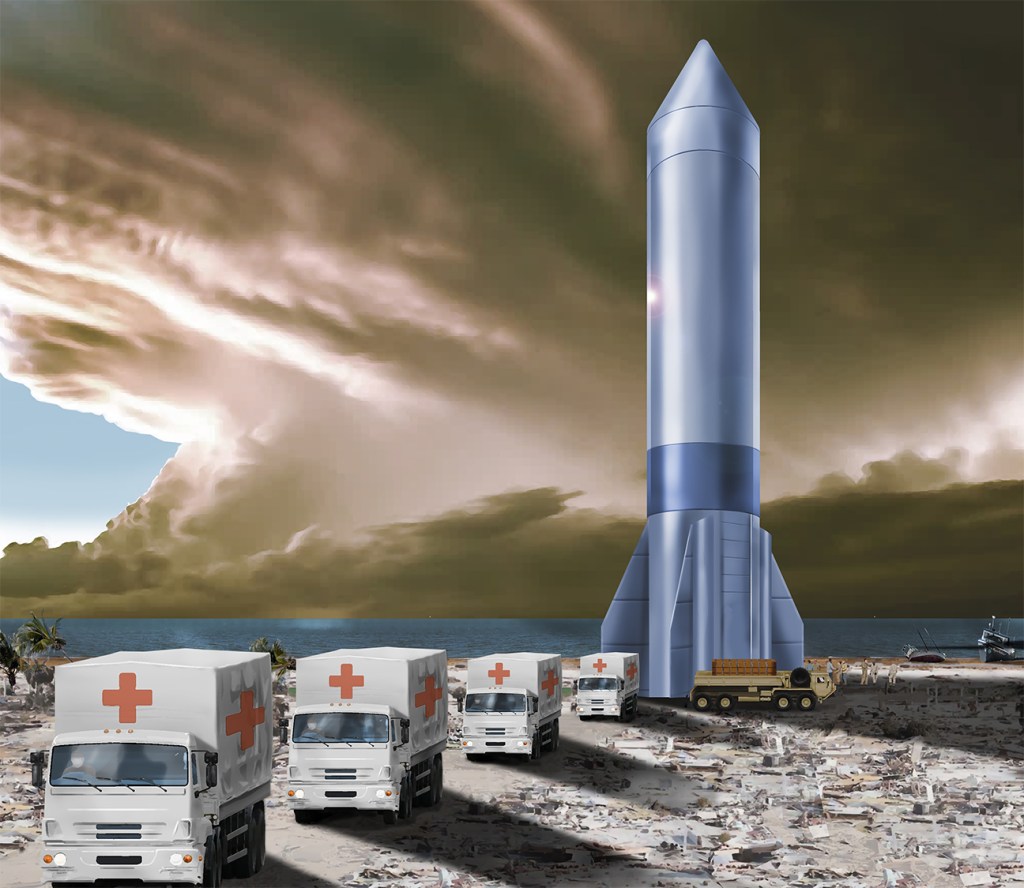In a strategic move to enhance military logistics, the U.S. Air Force has awarded study contracts to Blue Origin and Anduril Industries. These contracts aim to explore innovative methods for transporting military cargo from orbit to Earth, potentially revolutionizing rapid deployment capabilities.
Contract Details and Objectives
Blue Origin has secured a contract valued at $1.37 million, while Anduril’s contract is worth $1 million. Although these amounts are modest, they signify the initial steps toward transforming the Pentagon’s cargo transportation methods. Such study contracts often serve as indicators of which companies may later compete for more substantial funding opportunities.
The contracts are part of the Air Force Research Laboratory’s (AFRL) Rocket Experimentation for Global Agile Logistics (REGAL) program. This initiative is a component of the broader Rocket Cargo program, which focuses on delivery as a service via orbital transport. The Air Force aims to procure these capabilities through service-type contracts, akin to how the Department of Defense contracts commercial airlines. The goal of the REGAL program is to validate commercial, reusable rockets, reentry systems, and cargo transportation systems to enable deliveries to remote or hard-to-reach areas in less than an hour.
Blue Origin’s Role
Blue Origin’s contract involves analyzing how its technology could support point-to-point material transportation. The work will be conducted at Merritt Island, Florida, where Blue Origin is developing the heavy-lift New Glenn rocket. This analysis will assess the feasibility of using Blue Origin’s existing and forthcoming technologies to meet the Air Force’s rapid cargo delivery requirements.
Anduril’s Involvement
Anduril’s design study contract falls under a separate call for proposals titled Payload Reentry from Space Development and Demonstrations. This suggests that Anduril will explore the development of a reentry container capable of carrying between five to ten tons of payload from Earth to orbit and back. The study will propose a thermal protection system and ensure the container’s compatibility with various rockets. Additionally, the payload container should integrate multiple government-defined payloads and function across different platforms.
Challenges and Industry Context
Reentry poses significant challenges in spaceflight, particularly in developing materials that can withstand atmospheric reentry without compromising the contents. While companies like Varda Space Industries have developed reentry capsules for in-space manufacturing, and SpaceX’s Dragon capsule returns cargo and astronauts from the International Space Station, the number of vendors capable of delivering this capability remains limited.
The awarding of these contracts follows Rocket Lab’s own REGAL contract announced earlier this year, which explicitly includes a flight demonstration step. If rocket cargo services mature, the Pentagon could procure delivery as a service, with substantial loads transported via commercial heavy rockets and returned to Earth inside capsules for rapid offloading. In the long term, the AFRL envisions the program potentially including point-to-point transportation of personnel.
Implications for Military Logistics
The collaboration between the Air Force and these private companies underscores a growing trend of leveraging commercial space capabilities for military applications. By investing in these studies, the Pentagon aims to harness cutting-edge technologies to enhance its logistical operations, ensuring rapid and efficient deployment of resources to meet global challenges.



